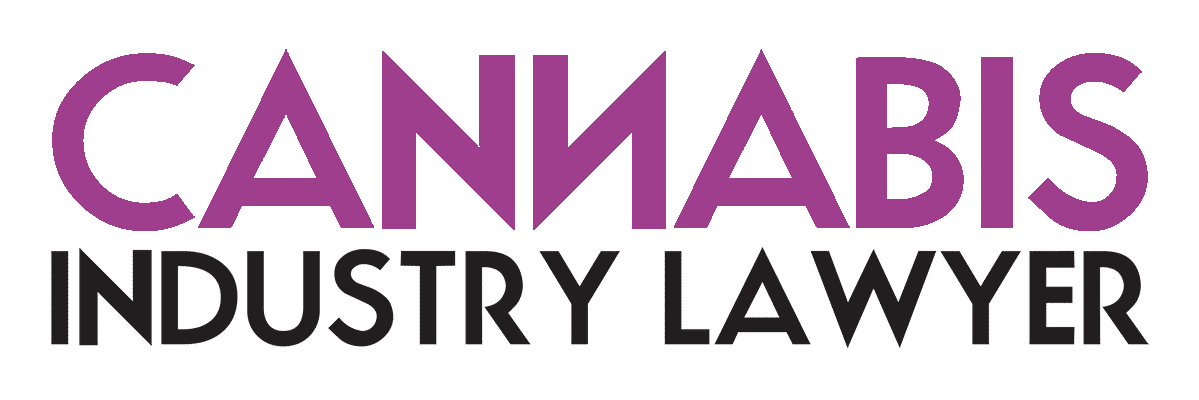Minnesota’s cannabis industry, though different from Ohio’s, presents unique opportunities for entrepreneurs and investors. This guide to adult use cannabis laws in Minnesota offers a detailed overview of the process to obtain a cannabis license in Minnesota, catering to the needs of prospective licensees.
Historical Context
Minnesota has its own unique journey in cannabis legislation, moving from restrictive laws to a more open medical cannabis program. This section will delve into Minnesota’s legislative history regarding cannabis, highlighting key developments that have influenced its current framework. The most recent update about adult-use cannabis legalization was the HF100 Bill, which was passed through the MN House of Representatives and barely passed out of the Senate by a vote of 34-33 on April 28, 2023.
Current Status of the Cannabis Industry in Minnesota
The cannabis industry in Minnesota is currently in a state of development. In 2014, the state passed the Medical Cannabis Act, which allows for the use of medical marijuana by qualifying patients. However, the law is quite restrictive, with only two licensed manufacturers and eight dispensaries allowed in the state.
Efforts to legalize recreational marijuana in Minnesota have gained momentum in recent years, but as of now, recreational use of cannabis is still illegal. However, there is growing support for legalization, and several bills have been introduced in the state legislature to legalize and regulate recreational marijuana.
Medical Marijuana Licensing in Minnesota
Eligibility and application process for businesses.
-
Regulations specific to Minnesota for the cultivation, manufacturing, testing, and sale of medical marijuana.
-
The role of the Minnesota Department of Health in regulating the industry.
-
Integration with other health programs and services in Minnesota. ‘
Marijuana Dispensary License
-
Purpose: This license allows for the retail sale of medical marijuana to registered patients and their caregivers.
-
Eligibility Criteria: Applicants typically need to meet stringent state requirements, including background checks and proof of financial stability.
-
Operational Guidelines: Dispensaries must comply with Minnesota’s medical marijuana program regulations, which include security measures, product handling, and patient education.
-
Compliance Requirements: Strict adherence to health and safety regulations is mandatory, including patient privacy laws and accurate record-keeping.
-
Market Analysis: Understanding patient demographics and medical conditions that qualify for medical marijuana use in Minnesota is crucial.
How to Open a Dispensary in Minnesota: Step-by-step guide
Step 1: Understand the Regulations
-
Research Minnesota’s Cannabis Laws: Thoroughly study the Minnesota Medical Cannabis Program. This includes understanding the qualifying medical conditions, patient and caregiver registration processes, and the specific product types allowed. If Minnesota has recreational cannabis laws, familiarize yourself with those regulations as well.
-
Determine License Type: Decide on the type of license that aligns with your business objectives. Minnesota offers different licenses for growers, manufacturers, and distributors of medical cannabis. Each type has its own set of regulations and requirements.
Step 2: Business Planning
-
Develop a Business Plan: Create a detailed plan that includes market analysis, patient demographics, financial projections, and marketing strategies. Ensure that your plan demonstrates a clear understanding of the Minnesota medical cannabis market.
-
Legal Structure: Choose a legal structure for your business (like an LLC or corporation) that best suits your needs, considering factors like liability, taxes, and ease of raising capital.
-
Compliance Planning: Develop a robust compliance strategy that covers state regulations on product safety, record keeping, insurance, security, employee training, and patient privacy.
-
Hiring a Cannabis Lawyer: Working with an experienced cannabis lawyer who specializes in cannabis law can be a game-changer when applying for a Minnesota cannabis license. These lawyers know the ins and outs of state regulations and can ensure that your application is thorough, complete, and in compliance with all legal requirements. Remember, the cannabis industry both medical and recreational is a very regulated space. Secure your success by contacting us!
Step 3: Location
-
Local Zoning Laws: Investigate local zoning requirements to ensure your chosen location is compliant with state and municipal regulations, especially regarding proximity to schools and residential areas.
-
Secure a Location: Find a location that not only meets state requirements but also considers factors like patient accessibility, market demand, and security.
Step 4: Licensing Application
-
Application Availability: Regularly check the Minnesota Department of Health website for information on when applications for cannabis licenses are being accepted.
-
Required Documents: Prepare necessary documents, including business plans, financial statements, security protocols, and employee background checks. Ensure these documents are thorough and accurate.
-
Application Fee: Understand the fee structure for the specific license you are applying for and ensure you have the necessary funds, keeping in mind that these fees are often non-refundable.
Step 5: Compliance and Inspection
-
Regulatory Compliance: Maintain a comprehensive understanding of state regulations and ensure your operation adheres to these rules.
-
State Inspection: Prepare for inspections by the Minnesota Department of Health or other regulatory bodies to verify compliance with state regulations.
Step 6: Operational Readiness
-
Staffing: Hire knowledgeable staff and provide thorough training on compliance, product information, and customer service.
-
Inventory Control System: Implement a state-compliant inventory control system to track products from seed to sale.
-
Patient Education: Develop educational materials and train staff to inform patients about product usage, safety, and legal guidelines.
Step 7: License Approval and Operation
-
Receive License: Upon receiving your license, review all the conditions and ensure you fully understand your obligations and rights.
-
Begin Operations: Start your operations with a focus on patient care, compliance, and quality service.
Step 8: Ongoing Compliance
-
Regular Reporting: Establish a routine for regular reporting and documentation as required by the state.
-
License Renewals and Audits: Keep track of renewal deadlines and prepare for potential audits by maintaining detailed records and adhering to operational guidelines.
Financial Requirements
Launching a dispensary can be a lucrative venture, but meticulous planning is essential to navigate the substantial initial investments. A clear understanding of these costs is crucial for attracting investors and building a financially secure foundation for your business.
- Minnesota Cannabis retail dispensary (Application fee $2,500; initial license fee $2,500; renewal license fee $5,000)
- Professional Services; Cannabis Lawyer and Consultant
- Real Estate and Dispensary Layout & Design
- Dispensary Employee and Training Program
- Inventory Management
- Product Sourcing
- Security measures and cannabis technology
- Insurance
- Starting July 1, 2023, all sellers of taxable cannabis products must remit the new Cannabis Tax to the Minnesota Department of Revenue.
What other types of Cannabis Business Licenses are in Minnesota?
The Cannabis Management Board will be responsible for issuing and regulating these licenses, which can range from a cannabis cultivator to a medical cannabis retailer. With so many options, businesses looking to enter the cannabis industry in Minnesota have plenty of opportunities. The Cannabis Management Board would be in charge of approval of all licenses under the bill. Under Sec. 10. The office shall issue the following types of cannabis business licenses:
-
cannabis cultivator ( grower), including:
-
craft cultivator; and
-
bulk cultivator;
-
-
cannabis manufacturer (processing);
-
cannabis retailer;
-
cannabis wholesaler;
-
cannabis transporter;
-
cannabis testing laboratory;
-
cannabis microbusiness;
-
cannabis event organizer;
-
cannabis delivery service;
-
lower potency edible retailer;
-
medical cannabis cultivator;
-
medical cannabis processor; and
-
medical cannabis retailer.
Additional Tips
-
Legal Consultation: Consider consulting with a cannabis lawyer who specializes in corporate and cannabis law.
-
Stay Informed: Regulations can change, so stay updated on Ohio cannabis laws.
-
Necessary Documentation and Compliance Requirements
-
Business Plan: Detailing your business model, market analysis, operational strategy, and financial projections.
-
Background Check Documents: For all owners and key staff members.
-
Facility Plans: Showing security measures, product storage, and processing areas.
-
Compliance Plan: Demonstrating readiness to adhere to state regulations.
-
Financial Statements: Showing financial stability and resources.
How much can you make from a dispensary in Minnesota?
A vibrant haze of possibility shimmers over the burgeoning cannabis landscape. Dispensaries, like emerald beacons, stand at the forefront, guiding consumers along a path of newfound well-being. While profitability may dance across a spectrum of 15% to 21%, the scent of success undeniably lingers in the air. Check out our comprehensive blog to learn more about how much does a dispensary make.
Factors that influence your dispensary’s revenue:
- Product
- Marketing
- Product Quality and Pricing
- Customer Experience
- Optimized Operations
How much money is required to open a dispensary in Minnesota in 2024?
Opening a dispensary in Minnesota requires a significant investment, and the exact cost may vary depending on a variety of factors, such as the location, size, and scope of the business. However, there are some general expenses to consider when planning to open a dispensary in Minnesota in 2024.
Firstly, applicants must submit an application, but that may not happen until 2025, to get a Minnesota cannabis retailer license. In addition to the application fee, there are costs associated with complying with the regulations set forth by the state, such as security requirements, background checks, and record-keeping obligations.
There are also costs associated with hiring and training staff, marketing the business, and purchasing inventory. While the state allows the sale of immature cannabis plants and seedlings, adult-use cannabis flower, adult-use cannabinoid products, and hemp-derived consumer products, these products must be obtained from licensed Minnesota cannabis cultivators, cannabis manufacturers, cannabis microbusinesses, or cannabis wholesalers.
Overall, the cost of opening a dispensary in Minnesota in 2024 may range from hundreds of thousands to millions of dollars, depending on the size and scope of the business. It is important to carefully consider all expenses and ensure that the business plan is financially viable before proceeding with the application process.
What do you need to know about dispensaries in Minnesota?
You’ll need to have a clear understanding of the dispensaries in Minnesota before you can start the process of opening one. Dispensaries are highly regulated, so you’ll need to be prepared to jump through a few hoops.
Minnesota is making strides to overhaul current prohibitions and legalize adult-use cannabis. If you’re passionate about cannabis and helping others access it safely, we recommend you to keep fighting for legalization and be patient. You can also check the Department of Public Health of Minnesota webpage to learn more about new regulations for medical marijuana businesses.
If you’re looking to open a dispensary in Minnesota, it’s important to understand that marijuana is still illegal under federal law. This means that even if you’re compliant with state laws, your dispensary could still be subject to federal prosecution. It also means that banking services and other financial institutions may not want to do business with a cannabis-related company, so keep this in mind when setting up your dispensary. Additionally, the state requires dispensaries to obtain a state license before opening their doors, which can be quite an expensive process. With these factors in mind, make sure you’re well informed before starting out on this path.
What type of business entity do I need to open a dispensary in Minnesota in 2024?
If you are looking to open a dispensary in Minnesota in 2024, there are certain requirements and regulations that you need to be aware of. Firstly, you need to obtain a license from the Minnesota Office of Medical Cannabis (OMC) and comply with the rules and regulations outlined in the Minnesota Medical Cannabis Act. But that is not really possible as they are not giving out any more licenses, so you will have to wait for the Adult Use licenses that are coming soon.
As for the business entity, you have several options to choose from, including sole proprietorship, partnership, limited liability company (LLC), and corporation. Each has its advantages and disadvantages, and the best choice for you depends on your specific situation and goals.
Sole proprietorship: This is the simplest form of business entity, where you are the sole owner of the dispensary. You have complete control over the business, but you are personally responsible for all debts and liabilities.
Partnership: If you plan to open a dispensary with one or more partners, you can form a partnership. There are two types of partnerships: general and limited. In a general partnership, all partners are equally responsible for the debts and liabilities of the business. In a limited partnership, there is at least one general partner who has unlimited liability and one or more limited partners who have limited liability.
Limited Liability Company (LLC): An LLC is a hybrid business entity, combining the liability protection of a corporation with the tax benefits of a partnership. As an owner of an LLC, you are not personally liable for the debts and liabilities of the business, and your personal assets are protected.
Are there any licensing requirements to open a dispensary in Minnesota in 2024?
Yes, there are licensing requirements to open a dispensary in Minnesota in 2024. Under the Minnesota Cannabis Regulation Act, individuals or businesses seeking to obtain or renew a license for a cannabis business, including a dispensary, must submit a comprehensive application that includes a variety of information, such as the applicant’s name, address, and date of birth, ownership and control disclosure, and proof of legal possession of the site where it will build the dispensary.
Additionally, applicants must provide a diagram of the premises, including a security drawing, and a copy of the security plan. They must also submit a copy of their business plan, which must include the expected size of the business, anticipated growth, methods of record-keeping, environmental plan, and other relevant financial and operational components.
Furthermore, applicants must provide certification that they will comply with the requirements of the Minnesota Cannabis Regulation Act related to the ownership and operation of a cannabis business. They must also identify one or more controlling persons or managerial employees as agents who will be responsible for dealing with the office on all matters.
Additionally, applicants must file and update as necessary a disclosure of ownership and control, which must include information on the management structure, ownership, and control of the applicant or license holder, as well as a statement from the applicant and any officers, directors, managers, and general partners indicating whether they have previously held or currently hold an ownership interest in a cannabis business in Minnesota or any other state or territory of the United States, or any other country.
Finally, before becoming operational, the regulators will visit your dispensary. For medical marijuana dispensaries, the Minnesota Department of Health would need to review and approve any healthcare practitioner that wanted to operate a medical cannabis dispensary. The adult use regulations will be slightly different, but studying what the state did for the medical regulations sheds clues on how it will regulate the plant.
Conclusion
This is where the fun begins! At minimum, you’ll get to choose your location, design your store, and stock it with all of the products you want to sell. Keep in mind that dispensaries will be highly regulated, so you’ll need to make sure you follow all of the rules and regulations. But if you do it right, you’ll be able to open your doors and start serving your community in no time. Watch out for tax issues related to cannabis dispensaries and call us to help you out.
About the Author
Tom Howard, Cannabis Industry Lawyer and Consultant has practiced commercial law since 2008 when he graduated law school and got his Series 7 & 66 Securities licenses. He pivoted to practicing litigation for financial institutions before helping cannabis teams form, capitalized and get licensed. He has concentrated in cannabis business since Illinois legalized in 2019. He won licenses for clients in Illinois, Connecticut, New Jersey, New Mexico, Massachusetts, Missouri and has gotten into lotteries in Ohio, Maryland and Maine. He became a Certified Ganjier in 2021. He chairs the ISBA’s section council for Cannabis Law in 2023.





